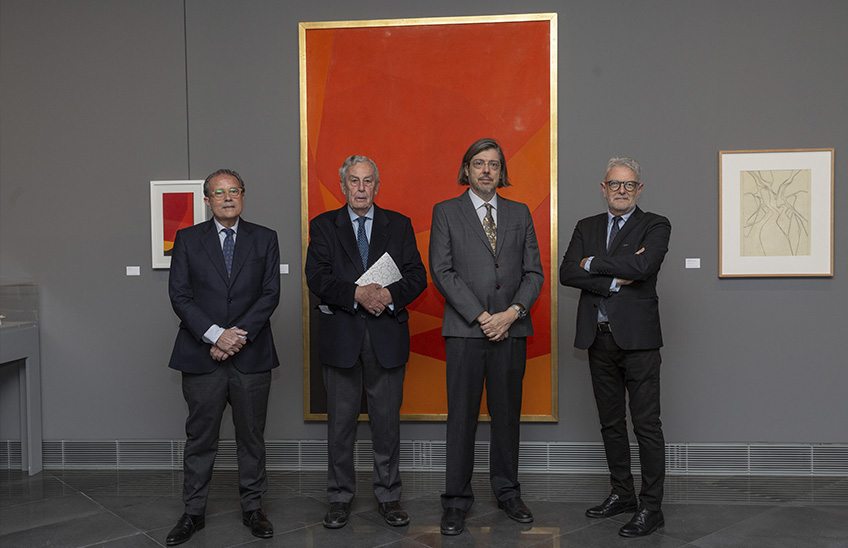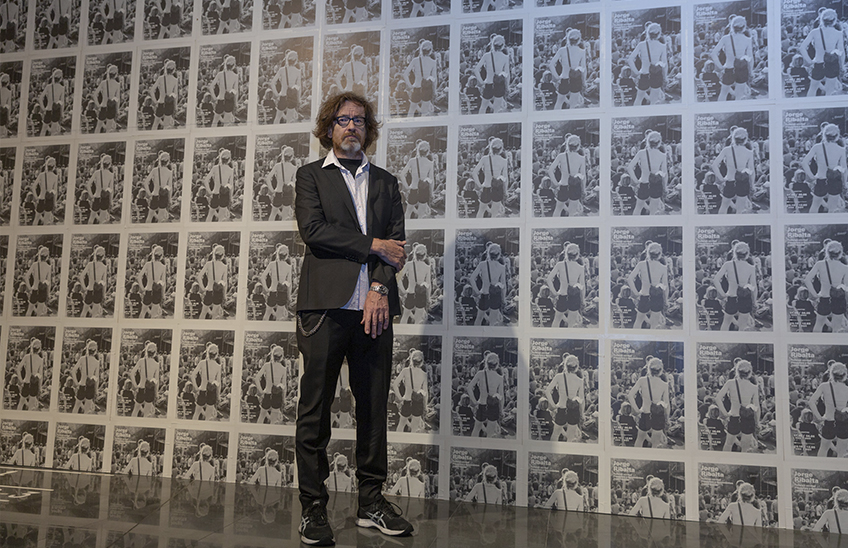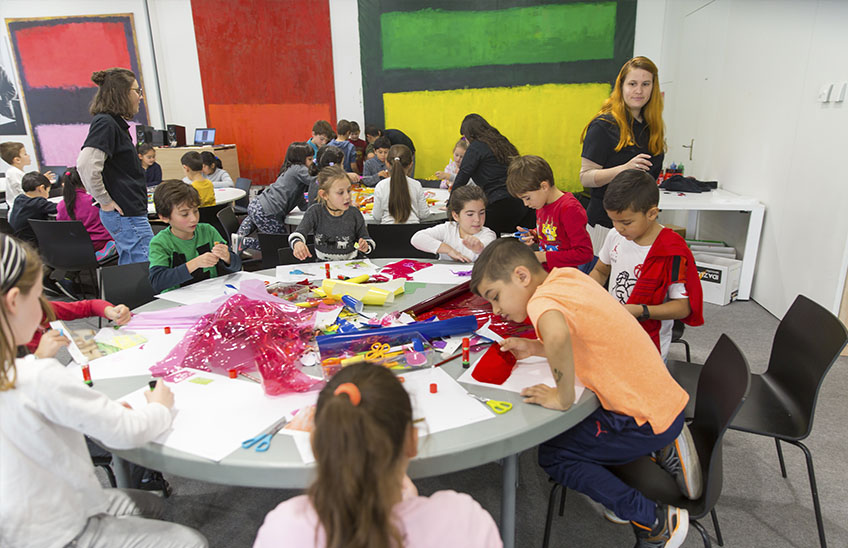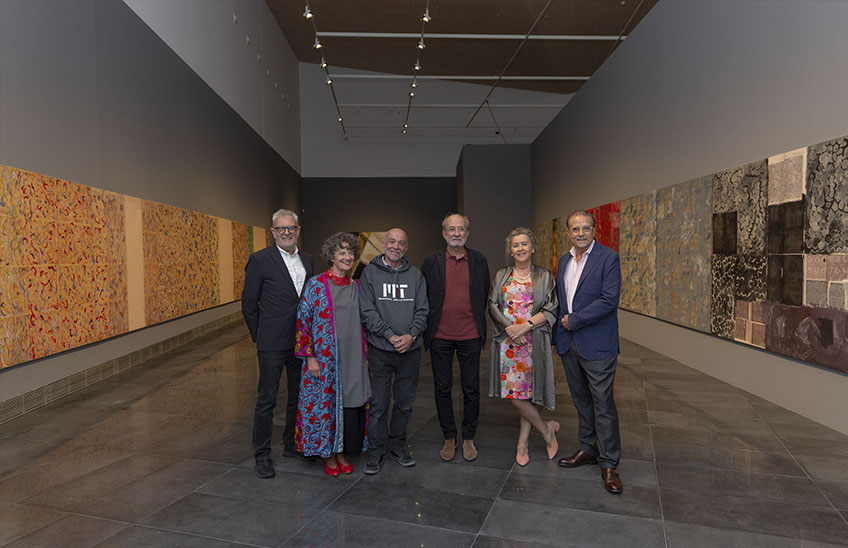The MUN organizes the Week of Attention, from May 23 to 25, conference to develop this capacity through workshops, conferences and meetings.
This is the first proposal of laboratory de Pausa, a space of research to develop, through experience, physical and mental competences linked to contemplative activity.
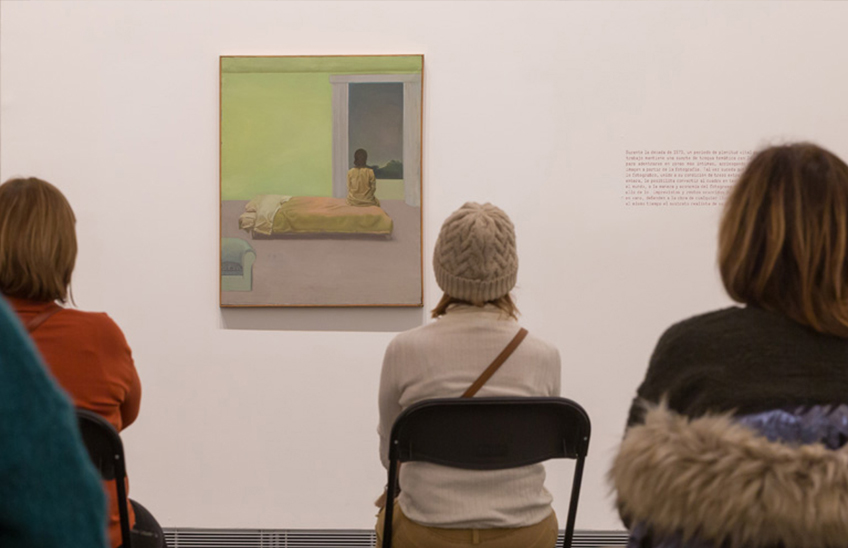
FotoManuelCastells/Several people participate in a 'visual thinking' session at the University of Navarra Museum in front of works by Isabel Baquedano.
11 | 05 | 2023
From May 23rd to 25th, the University of Navarra Museum is organizing the Attention Weekconference in which, through workshops, seminars and meetings, we will work on this capacity, which is especially threatened nowadays. The proposed activities seek to deepen and test practices to preserve and develop it. All the proposals in the program - aimed at the general public, educators, researchers, artists, museum professionals, etc. - are free of charge, prior registration until fill in capacity is reached. Places for the morning workshops have been sold out and a waiting list has been set up for registration. There are still places for the afternoon meetings.
The initiative, which is part of the MUN's project SociArte and is supported by Fundación la Caixa, is a collaboration between high school de Cultura y Sociedad (ICS) of the University of Navarra, Princeton University and the Friends of Attention collective. This is the first project of laboratory de Pausa, a space at research that invites us to develop, through experience, physical and mental skills linked to the contemplative life.
In the words of Nieves Acedo, Director of Programs at MUN, the goal of laboratory de Pausa "is to create a space of activity to host pilot projects informed by a style researcher to better understand the attitudes related to the experience of the art spectator. We are convinced that art contributes to the regeneration of subjectivity through the conscious cultivation of skills such as attention, listening, reflection and independent judgment. Pausa's laboratory seeks to test this hypothesis and find new ways to put it into practice at internship".
In this sense, Fernando Echarri, manager of the educational area of the MUN, points out that these conference want "to make people aware of their attention capacity to advance in the knowledge of reality, using this capacity in an adequate way".
CONVERSATION AND LEARNING
To achieve this, during the three days workshops, conferences and meetings have been organized with professionals from different disciplines such as visual artist and filmmaker Claudia Claremi, Princeton professor and researcher Graham Burnett, writer, facilitator and artist multidisciplinary Peter Schmidt and polarity therapist and osteopath, painter, dancer and facilitator Fernando Yoldi.
However, emphasizes Acedo, "beyond the specific activities, the program seeks to provide opportunities for exchange, conversation and mutual learning, uniting a community of art professionals, researchers, educators and interested people in general".
All activities will be guided by professionals from MUN's educational area and Friends of Attention. This initiative is especially important today because of the relevance of topic , "as a response to the fragmentation of attention in an over-stimulated and accelerated world," says Echarri. And in the face of this status, the MUN proposes to train this capacity. "It is necessary to have a finding that attracts the will and sustains the decision to pay attention. The different activities aim to facilitate discoveries in this direction. The commodification of care makes this task urgent and serious. We have a lot at stake, as almost everyone knows, and what we are trying to do is to contribute something, to act and show what art and a museum (especially in a university campus ) can mean in this common task," Acedo emphasizes.
The program will apply "active methodologies in the morning workshops, with participatory experiential sessions, including learning by doing and the search for meaningful experiences. And art is the vehicle for the transmission of all the contents," details the manager of Education. In this regard, the Director of Programs stresses that "contemplating art is an absolutely free and, at the same time, complex action. A work of art is not a landscape or a tree. It contains a spectrum of meanings that are not always correct, it responds to an intentionality and admits value judgments, of success or failure. In this sense, art is the center of conference. There is no art without attention and I can think of no better place to think about the latter than art".

